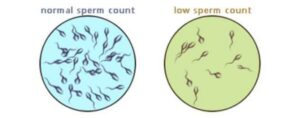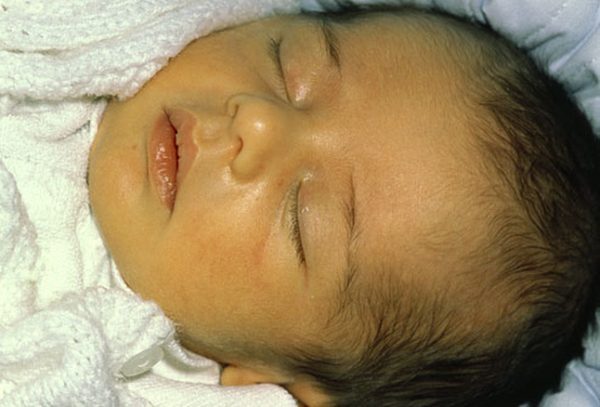
Low sperm count refers to semen (ejaculating fluid) containing fewer sperm than normal. This condition is also called oligospermia, whereas a complete absence of sperm is called azoospermia. One’s sperm count is said to be below normal limit if the count is fewer than 15 million sperm per milliliter of semen.
Having a low sperm count decreases the chances of your sperm fertilizing your partner’s egg, leading to pregnancy. Nevertheless, a lot of men with below-normal sperm count are still able to conceive a child.
Before delving deep into the reasons for low sperm count, let us first understand the symptoms
Inability to father a child is the main sign of low sperm count. There are no overt signs or symptoms to detect if the sperm count is low. In some cases, an underlying problem such as congenital chromosomal abnormality, change in hormone levels, dilation of testicular veins, and blockage in the passage of sperm may cause signs and symptoms.
General symptoms of low sperm count are the following
- Problems with sexual function – Low propensity towards sex and difficulty maintaining an erection – erectile dysfunction
- Lump, swelling or pain in the testicular area
- Reduced body or facial hair or other signs of hormonal or chromosomal abnormality
Diagnosed with low sperm count is tough to come to terms with, but knowing that there are steps that one can take to prevent it is heart-warming, though that is something that people tend to overlook. At times having a low sperm count is something that is beyond the control of the person who is diagnosed with. But sometimes there are steps that one can take to keep this condition at bay.
As mentioned below, a lot of factors that make the overall sperm count low are also indicative of general health concerns.
SMOKING
The amount of cigarettes you some has a close relation with your sperm count, apart from being utterly harmful to your overall well being. Over time, the effects of smoking eventually lead to reduced sperm count.
ALCOHOL
Excessive consumption of alcohol aggravates infertility. Quantity at which sperm count is reduced is quite high by alcohol. Alcohol adversely affects testosterone and reduces sperm count. If you are hopeful of fathering a child, make sure you take proper action to cut back this unhealthy habit. Moreover, it goes well for your overall health as well. Cutting off the high amount of alcohol is a fitting first step to make yourself fitter.
WEIGHT
It is scientifically proven that obesity can affect male fertility. How it actually happens is when a male gets obese, the layers of fat tissue that cover testicles get overheated. Heat is detrimental to sperm health. This issue is yet another health concern that can impair sperm count, leading to male infertility
HEAT
In the previous point it was mentioned how heat negatively affects sperm count. Besides obesity heat can affect in a wide variety of ways. Sperm health is negatively affected by heat during a hot bath, keeping working laptop or other heat generating devices on your lap for a prolonged period of time. You might have noticed that when the laptop overheats how uncomfortable you get, so it is not difficult to understand what happens to your sperm when heat is generated out of it. Steer clear of longer periods spent in baths, hot tubs and always use a cooling pad when you use your laptop.
INTERCOURSE
Can sex be bad for sperm? YES, if it happens too frequently! When couples are trying to conceive and if the lady luck is not smiling on them immediately after marriage, they tend to be overzealous in their efforts and can have sex several times per day. The interesting thing that one needs to understand here is there is no connection between infertility and male virility – a man can have high drive for sex, but can still be infertile.
Just like in economics when the demand exceeds supply, the price takes a nosedive, when the sperms are hard-pressed for sex day in and day out, they can lose their potency.
TESTICULAR FACTORS
Testicular factors are those which come in the way of testicles’ ability to produce sufficient sperm in the required quality. Some of the factors can be cured, but others can’t. They include:
- Older age
- Testicular trauma
- Certain past infections (syphilis, mumps, malaria)
- Varicocele enlargement (which can often be treated surgically and non-surgically)
- Testicular cancer
- Chemotherapy and radiation therapy
If one has fertility issues despite being prudent, needn’t worry, many of the causes leading to infertility in men can be treated. Even if it goes beyond the point of being treated, there is an array of assisted reproductive procedures that can improve a man’s ability to father a child. They include fertility drugs, medical devices, surgery, or a combination of treatments.
Whatever the reason is, don’t give up. Whatever the cause of infertility, consult a fertility specialist who is the right person to handhold you through the whole process.





